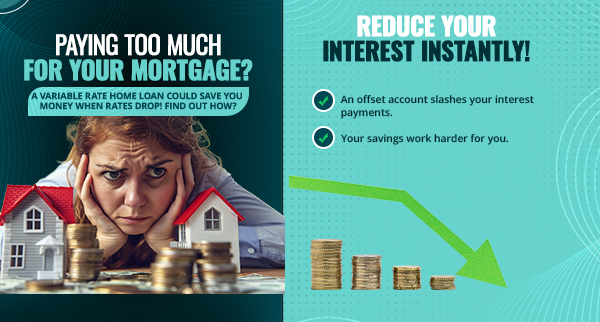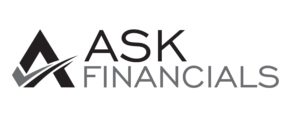Fixed and variable interest rates are the two most common types of house loans in Australia. There is no set interest rate for a variable home loan; rather, it fluctuates with market conditions. Your mortgage payments will rise in tandem with changes in your lender’s variable interest rate.
In a fixed-rate loan, the borrower’s interest rate and monthly mortgage payment don’t change for a set amount of time, often between one and five years. In contrast, a variable-rate loan allows the borrower more flexibility in these areas.
Depending on your desired features and flexibility, one option might be a better fit for you than the other. If you’re seeking a guaranteed rate for a specific duration, a fixed rate could be appealing.
If you’re looking for the option to utilise an offset sub-account, make additional repayments, or simply desire more flexibility, a variable rate home loan could be the perfect choice for you.
What is the variable home loan rate?
You may have a very basic idea of what interest rates are, but let’s make it clear what a flexible interest rate is.
Interest rates that are variable can go up or down with the market. Fixed rates are locked in for one to five years most of the time. Variable rates, on the other hand, can and probably will change over time.
Rates of interest hit all-time lows when the Reserve Bank of Australia (RBA) lowered the cash rate to 0.10% in November 2020. There were even rates of interest that were less than 2%.
Since the RBA has raised the cash rate several times this year, lenders have also raised their interest rates.
However, the cash rate isn’t the only thing that affects interest rates that change. The interest rates your lenders give can also be affected by things like the general state of the market, loan limits (for example, APRA raising its serviceability buffer from 2.5% to 3%), and their funding costs and business choices.
Why do interest rates fluctuate?
There are many things that can cause interest rates to change.
The cash rate set by the RBA
The Australian cash rate is the most important thing. The Reserve Bank of Australia (RBA) meets to set the cash rate every first Tuesday of the month, except in January. They decide whether to raise it, lower it, or keep it the same based on a number of things, such as how the Australian dollar is doing, how the home market is doing, and inflation.
This choice about the cash rate affects interest rates all over the country, as well as inflation, economic activity, and how people buy and give money in the housing market.
It’s important to remember that mortgage companies can change their interest rates no matter what the RBA does.
The rising cost of loans
More lenders are changing their interest rates these days, even though the RBA hasn’t changed the cash rate. Lenders recently say that the rise is due to their “cost of funding.” Why is this? Because banks sometimes borrow money from places outside of Australia, and the rates on these funds change in ways that we might not understand.
The RBA doesn’t have to change the cash rate for your bank to change the interest rate on your variable home loan. This is important to know.
What is the difference between fixed and variable rates?
Fixed and fluctuating interest rates are not the same in a few ways.
Fix rates do not change, whereas variable rates do change
Fixed rates don’t change, but variable rates can. As we already said, flexible interest rates will change based on how the market is doing. Fixed interest rates, on the other hand, don’t change for a while.
Like, if you lock in an interest rate that stays the same for two years, that rate will stay the same for two years. When the two years are up, though, your interest rate will go back to the normal fluctuating rate set by your loan.
Your flexible rate could go up or down over the next two years. Since you have a set interest rate, interest rate cuts wouldn’t help you and interest rate hikes wouldn’t hurt you either.
Mortgages with variable rates are more flexible.
Variable rate home loans may provide offset sub-accounts, redraws, limitless extra payments, and more.
Your offset sub-account is connected to your home loan and offsets any deposits against the principle. Thus, you will only pay interest on the difference.
If you have a 100% offset sub-account, a $300,000 house loan principle, and $100,000 in an offset sub-account, you will only pay interest on $200,000.
Unlimited additional repayments are precisely that—unlimited. A redraw facility lets you use your equity and pay it back later.
A variable rate home loan’s flexibility may help you pay it off faster and pay less interest.
Extra repayments are either prohibited or restricted with a fixed-rate home loan. Offset sub-accounts and redraws are improbable.Interest rate hikes wouldn’t affect them either.
Fixed rates are pretty handy when it comes to budgeting.
With a fixed rate home loan, you can chill knowing exactly what your monthly payments will be. If you have a variable rate home loan, your monthly payments might shift when interest rates fluctuate.
A fixed interest rate is great for budgeting since you’ll know exactly what your monthly mortgage payment will be. A variable rate might shift around, but it can be pretty handy if you take advantage of its flexibility and features.
What are the benefits of variable rates home loans?
One of the most significant benefits of variable home loans is that they:
- Repayments on a monthly basis may be reduced as a consequence of fluctuations in the interest rate.
- It is possible to include a variety of features, such as a redraw facility or an offset account.
- Having the ability to issue further refunds.
- The break charge that is often associated with a fixed term is not applicable in the event that you decide to refinance.
Comparing the variable home loans
Mortgage lenders in Australia provide borrowers with a range of flexible home loan options. Get a good grasp on these distinguishing characteristics before you start comparing possibilities.
Structure of repayment
A variable loan that differs from a typical principle and interest loan in its repayment arrangement is an interest-only loan. You are only required to repay the interest on an interest-only loan for a certain amount of time (sometimes up to five years), rather than the principle. Throughout the interest-free term, this arrangement lowers the cost of the loan.
But it also means you’ll have to pay a lot more interest over the course of the loan because the principle isn’t going down. Therefore, investors are usually better off with interest-only loans.
Payback schedule
You may be able to choose among weekly, biweekly, or monthly repayment options with certain mortgage providers. You may reduce the principle of your loan faster if you pay it off in instalments, such as weekly or biweekly.
One function that lets you make additional payments is the opportunity to make your basic repayment plan more frequent. You may be able to lower your interest and principal payments throughout the life of the loan with these modifications.
Account Offsets
A home loan that changes over time may come with a balance account. This account is related to your home loan and can be used for everyday transactions. Because the money in your account is used to pay down the debt on your loan, it helps you as a renter.
Let’s say you still owe $200,000 on your house loan and have $20,000 in your side account. You will not have to pay interest on $200,000, but only $180,000.
Costs and deals
Variable home loans have fees for handling applications and late payments, just like any other type of loan. Before you take out a loan, think about these extra costs. Even if the rate is low, the fees may be high and add up over 20 or 30 years.
The other side is that lenders offer deals like cashback to get people to buy.
Frequently Asked Questions
Can I change my mortgage interest rate from variable to fix rates?
Even though committing to a 30-year home loan might feel overwhelming, remember that you have options and aren’t locked in forever.
If you have a variable rate home loan and want to switch it to a fixed rate home loan, you can easily do so! Refinancing successfully is quite straightforward, especially if you’re beginning with a variable rate.
Refinancing from a fixed-rate home loan can be a little more complicated. When borrowers decide to end a fixed rate agreement early, lenders may charge them additional fees known as break fees. That’s because they might lose a source of income that was promised to them before.
It’s definitely possible to refinance a fixed rate home loan! It’s important to take the time to think about the advantages and disadvantages thoughtfully.
How often do variable mortgage rates change?
Mortgage rates might change at any moment. Most lenders offer borrowers at least 20 days’ notice before raising rates.
Variable interest rates usually follow the RBA cash rate. Variable home loan rates will likely rise or fall with the cash rate. About every six weeks, the RBA board considers changing the cash rate.
Can you pay off a variable rate home loan early?
Yes. Variable interest rates allow early house loan repayment.
Variable-rate mortgages offer limitless additional payments. Overpaying might save you thousands in interest and reduce the term of your house loan.
However, fixed-rate home loans may restrict additional repayments and punish borrowers who exceed them.
Are variable rates higher than fixed rates?
How advertised variable interest rates compare to advertised fixed interest rates depends on the official cash rate and whether lenders predict it to climb or decrease soon.
If a lender expects the cash rate to climb in the next months or years, it will price its fixed rates higher than its variable rates. If it believes the contrary, it would likely price its fixed rate offerings cheaper than its variable rate offers.
Is Your Home Loan Prepared to Benefit You?
You just read about how house loans with variable rates may let you take advantage of offset accounts, make additional payments, and adjust to market fluctuations. If you want to secure your financial future, you must strike a balance between being flexible and being too rigid.
ASK Financials is here to help with that!
We personalise solutions at ASK Financials to match your unique requirements; we don’t just provide alternatives. Our specialist brokers are here to assist you every step of the journey, whether you’re inquisitive about the long-term savings potential of a variable rate or if you think a fixed rate could provide more security.
Do you need help deciding which loan is best? We can eliminate uncertainty by doing this! Schedule a no-cost discovery call now to get tailored guidance through the home financing process.
It’s not just about picking a loan; it’s about feeling confident about your financial future. Let’s have a conversation and figure out what works best for you!
To begin your path towards a more intelligent mortgage, click here to schedule a discovery call right now.
For more information click the link.


